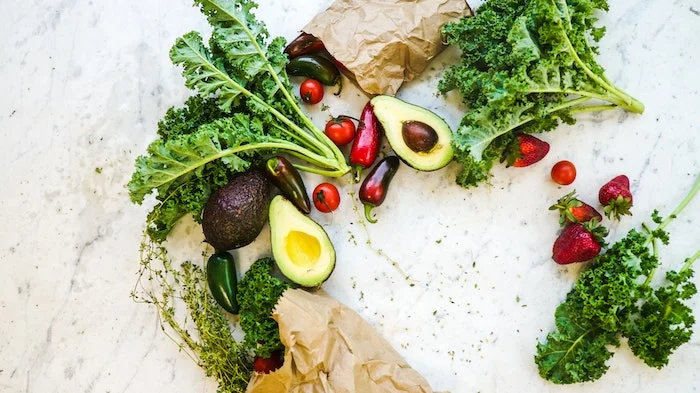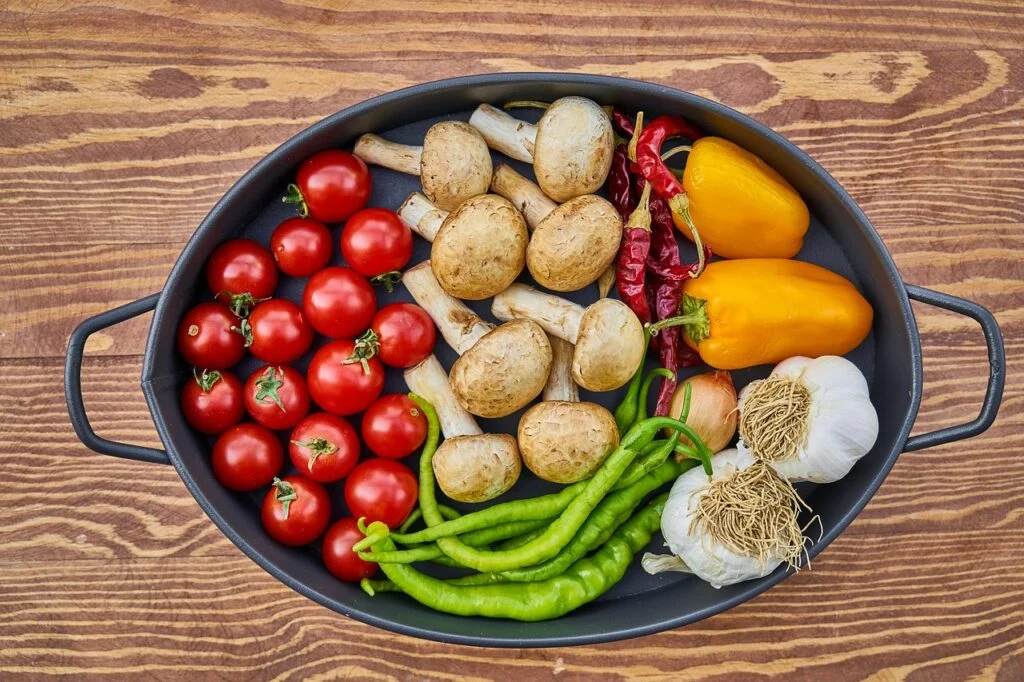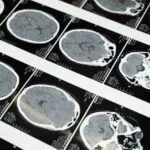8 Types of Food to Eat When Detoxing From Alcohol
Alcohol addiction affects many globally.
The World Health Organisation (WHO) estimates that there are 3,000,000 deaths each year [1] that are attributed or related to alcohol consumption.
WHO also estimates that over 5% of the global burden of disease and injury is attributed to excessive alcohol consumption.
However, death and illness due to alcohol-related incidents aren’t the only issues related to alcohol addiction. Even those who are able to overcome the compulsive urge to consume alcohol continue to suffer from its withdrawal symptoms.
Symptoms of Alcohol Withdrawal Syndrome
Alcohol Withdrawal Syndrome [2], or alcohol withdrawal, is when a person who is dependent on alcohol stops consuming alcohol but suffers from withdrawal symptoms. Alcohol Withdrawal Syndrome can come in the form of very mild symptoms or symptoms so severe that it can lead to death.
People suffer from alcohol withdrawal because their central nervous system must adjust from having alcohol in the system to having zero. This leads to chemical changes in the brain and body.
The severity of these symptoms will depend on many factors, such as how dependent the subject is, existing mental health conditions, medical history, and more.
Common alcohol withdrawal symptoms include but are not limited to:
- Headaches: Headaches are very common among subjects who are experiencing alcohol withdrawal symptoms. In addition to factors such as dehydration, headaches can be attributed to stress hormones released as a result of alcohol cravings.
- Anxiety & Depression: The brain must adjust to the period of abstinence when suffering from alcohol withdrawals. Alcohol affects the brain in many ways, and since alcohol is a depressant, the brain is in a state of reduced alertness and relaxation while intoxicated. Abstaining means that the brain must readjust chemically, and then experiences polarised symptoms without alcohol such as anxiety and depression.
- Brain fog & irritability: Alcohol impacts our neurotransmitters when we are under its influence. However, when we abstain, we may experience brain fog and irritability as a result of the brain coping without alcohol.
- Excessive sweating & insomnia: Patients often experience excessive sweating and insomnia when suffering from alcohol withdrawal. Often, these go hand in hand in the form of night sweats, making it difficult to sleep without being uncomfortable and dehydrated. This leaves patients prone to suffering from dehydration in hot climates or hypothermia in colder climates.
- Muscle cramps: Dehydration and excessive sweating can exacerbate muscle cramps. This is because we lose plenty of electrolytes (such as sodium and potassium) when we are sweating.
- Nausea, vomiting, and diarrhoea: Patients may experience increased sensitivity and reactivity to particular smells or tastes while suffering from alcohol withdrawal.
- Delirium tremens & trembling: Delirium tremens is potentially the most severe form of alcohol withdrawal symptoms. Patients suffering from delirium tremens will experience confusion, disorientation, and loss of coordination, and it is described as a “shaking frenzy”.
- Seizures: Among patients who are suffering from the most severe forms of alcohol dependence, it is possible that they may suffer from seizures during the withdrawal stage. Alcohol withdrawal seizures are thought to occur because of the rapid chemical changes that the body undergoes when suddenly abstaining after prolonged periods of excessive alcohol consumption.
Foods to Eat When Detoxing From Alcohol

It is important to remember that recovery is a lifestyle that extends beyond rehab. In addition to going to rehab and undergoing the necessary addiction treatment program, we must take matters into our own hands by adopting healthy lifestyle habits such as eating healthily.
Before going into greater detail about why these are important, the best foods and drinks to consume when detoxing from alcohol include:
- Fruit and vegetables
- Whole grains
- Prebiotics and probiotics
- Healthy fats
- Protein-rich food
- Herbs and spices
- Herbal teas
- Food rich in zinc
Importance of Hydration When Detoxing From Alcohol
Before exploring the best types of food to eat when detoxing from alcohol, it’s important to note the importance of hydration. Not only do non-addicted people need to stay hydrated to maintain basic cognitive functions, lubricate the joints, and protect their organs.
Here are 8 types of food to eat when detoxing from alcohol:
1. Fruits and Vegetables
We are always told to eat our fruits and vegetables when we are children, and it shouldn’t be any different when we are adults. Fruits and vegetables come in a wide range of forms and are packed with nutrients, helping us maintain skin health, a healthy immune system, and much more.
But this is especially important for someone who is suffering from alcohol addiction or experiencing alcohol withdrawals. Often, people who suffer from alcohol withdrawal and addiction are already suffering from malnutrition due to the harmful effects of alcohol on our digestive system and gastrointestinal tract.
Fruit and vegetables are packed in fibre. Fibre is an important addition to someone’s diet because it can normalise our bowel movements, improve digestive health, lower cholesterol levels, control blood levels, and more.
Some of the best fruits and vegetables for alcohol detox include:
- Mango: Mangoes are rich in polyphenolic compounds and antioxidants which can help prevent a range of diseases. It can also help increase ADH and ALDH levels, hormones which are important for maintaining water, osmolar, and blood pressure homeostasis.
- Bananas: Bananas are rich in potassium which can help minimise muscle cramps which is prevalent among people undergoing alcohol withdrawal. Additionally, bananas are a good source of vitamin C and magnesium.
- Spinach & kale: Spinach and kale are rich in vitamins which are often lacking among patients undergoing alcohol detox. Both spinach and kale are packed with vitamin C and iron. There is a correlation between alcohol consumption and iron deficiency. However, alcohol consumption (particularly red wine) can increase iron intake, and patients must incorporate iron into their diet rather than through their alcohol intake.
- Asparagus: Over the centuries, asparagus has often been seen as a herbal medicine in many cultures. It is thought that the nutrients and fibre in asparagus can reduce liver oxidative damage which is frequent among those who suffer from alcohol addiction and withdrawals. They are also believed to relieve the symptoms of a hangover by supporting liver cells.
- Ginger: Ginger is a root vegetable which is often treated as a herb or spice not only to enhance the flavour of meals but for medicinal purposes. Ginger is often used to treat stomach aches, diarrhoea, nausea, and much more. These are common symptoms among people suffering from alcohol withdrawal. It also has antioxidant compounds [3] that can manage the oxidative stress or pains caused by alcohol. Ginger can be consumed in meals or combined with liquid to make.
- Broccoli: The vitamin B, fibre content, and anti-inflammatory make broccoli a highly nutritious vegetable. Patients suffering from alcohol addiction and withdrawal often suffer from vitamin B deficiency, this is because alcohol increases the acid levels in the stomach which affects our abilities to digest food and absorb nutrients.
2. Whole Grains
Whole grains are high in fibre. Not only are they a healthy addition into the average person’s palette, but they can assist patients suffering from alcohol detox symptoms. Often, those who are suffering from alcohol addiction are suffering from digestive and gastrointestinal issues.
Studies show that alcohol ‘can impair the function of the muscles separating the oesophagus from the stomach’ as well as increase the chances of esophageal cancer due to the damage of the mucosal lining. Studies show that dietary fibre has anticarcinogenic properties which can minimise the cancer risks associated with alcohol.
Furthermore, fibre can ease digestion and relieve nausea, which is a common symptom of alcohol withdrawal. Whole grains promote healthy gut bacteria which not only support the stomach but increase bone mass, strengthen the immune system, and boost energy levels.
Whole grains foods which can aid alcohol detox include:
- Oats
- Brown rice, black rice, and red rice
- Quinoa
3. Prebiotics and Probiotics

Alcohol can have adverse effects on our gut health. Alcohol can disrupt the healthy balance in the gut [4], leading to issues such as leaky gut syndrome.
Prebiotics and probiotics are essential in promoting healthy gut bacteria. It can be confusing to differentiate the two terms which not only sound similar but have similar definitions.
Probiotic foods, drinks, or supplements have live microorganisms that can help us boost the level of healthy bacteria in our stomachs. Prebiotics are what feed the microorganisms in our gut.
Here are some of the best prebiotics and probiotics for alcohol detox:
- Kombucha: Kombucha is a fermented tea that contains probiotics, antioxidants, and polyphenols that support gut and immune health. One question people may have is whether kombucha has alcohol content [5]. Most kombucha brands have less than 0.5% alcohol. However, proceed with caution by researching the alcohol content of the specific brand of kombucha. Typically, homebrewed kombucha has a higher alcohol content and should be avoided when recovering from alcohol addiction and withdrawal.
- Yogourt: Yoghurt [6] offers a range of benefits such as Vitamin B12, and Vitamin K. It can also make people feel full for longer, which is beneficial if the patient is struggling to eat much due to their symptoms of nausea.
- Kimchi: This popular Korean dish consists of salted and fermented vegetables which can be easy to make at home. Kimchi is a low-calorie food and source of fibre which can boost immune system functions and reduce inflammation.
- Miso: Miso soup can reduce the chances of cardiovascular disease and stomach cancer. It can also reduce inflammation and support gut health.
- Garlic: Not only is garlic a prebiotic, it is also anti-viral. Studies show that garlic can reduce the severity of oxidative stress related to alcohol issues such as alcohol-related liver disease.
- Oats: Oats are another form of prebiotic that can also help reduce alcohol-induced oxidative tissue damage [7]. Furthermore, oats are rich in fibre and filling, meaning that patients can feel satiated without exacerbating their nausea. They are also incredibly accessible and easy to incorporate into a dish.
4. Healthy fats
It is a misconception that fats are bad for us. Of course, there are unhealthy fats in the form of saturated and trans fats. However, unsaturated fats are healthy for us and can deliver a range of benefits.
Healthy fats can improve our moods, reduce inflammation, improve cognitive functions, and keep us full for much longer. It can also help us absorb nutrients more effectively, which is an issue among chronic alcohol drinkers.
Omega-3 is also an example of healthy fats. Omega-3 can reduce inflammation, improve cardiovascular health, lower cholesterol, improve eye health, and even reduce symptoms of depression [8].
Studies even show that Omega-3 intervention can play a significant role in relapse prevention [9]. This is done by normalising the functioning of the mesolimbic pathway, the “reward pathway” which is responsible for making us experience physical and psychological cravings for alcohol.
Foods that include healthy fats include:
- Eggs
- Salmon
- Avocado
- Chia seeds
- Walnuts
5. Protein-rich foods
Many patients suffering from alcohol addiction suffer from conditions such as muscle atrophy. Alcoholic myopathy [10] is a condition among long-term alcohol drinkers who lose strength or function in their skeletal muscles.
This is not only because frequent and excessive alcohol consumption typically reduces the activity levels in a person, but it interferes with our abilities to absorb protein. Excessive alcohol consumption is proven to prevent protein synthesis [11] in our body.
Protein-rich foods will make people feel full for much longer. If the patient is suffering from alcohol withdrawal symptoms such as nausea, they may struggle to consume much food.
While fats can be healthy, the patient may not have the appetite for fatty foods while undergoing detoxing from alcohol. Therefore, it’s important to select foods that are high in protein.
Best protein-rich foods for alcohol detox:
- Chicken
- Beef
- Fish
- Bone broth
6. Herbs and Spices
Herbs and spices not only enhance the flavours of our dishes but they’re easy to incorporate. They’re also easily scalable, so patients can add however much or however little they want onto their meals.
Many herbs and spices have antioxidant properties and detoxifying effects. Popular herbs and spices that can decrease alcohol cravings and improve bodily functions include thyme, cayenne pepper, kudzu, and red sage.
Thyme [12], for example, has been shown to reduce alcohol toxicity in the body. Red sage, on the other hand, is thought to be effective in improving cardiovascular health and reducing the likelihood of alcohol-related cardiovascular diseases.
7. Herbal teas

Hot drinks such as coffee may cause discomfort for people who are suffering from alcohol withdrawal. If the patient is suffering from symptoms such as anxiety, depression, or diarrhoea, ingesting stimulating drinks such as coffee may produce an intense caffeine spike and exacerbate existing symptoms.
However, people will struggle to go a day without caffeine or a hot drink to start the morning. Consider swapping out your coffee for a herbal tea. Often, herbal teas are non-caffeinated. However, even if they are, they are slow-releasing which means the effects are far less intense than that of a coffee.
Here are some of the best herbal teas one can consume while detoxing from alcohol:
- Green tea: Studies also show that green tea [13] is a potent antioxidant in alcohol intoxication. However, its benefits extend to when patients are detoxing from alcohol. Green tea contains antioxidants, supports immune function, reduces the risk of developing diabetes by reducing blood sugar levels, and more. It may even relieve headaches which are frequently experienced among people suffering from alcohol withdrawal symptoms.
- Peppermint tea: Peppermint has many benefits which can aid recovery for patients suffering from alcohol withdrawal symptoms. Firstly, peppermint can relieve stomach cramps, bloating, diarrhoea, and more.
- Chamomile tea: Insomnia is a prevalent symptom described by patients who are undergoing alcohol addiction recovery. Chamomile tea is a mild sedative which can help promote relaxation and improve sleep quality [14]. In addition to treating insomnia and patients suffering from nightmares, it can help reduce anxiety.
This is another great way to replenish vitamins and minerals during alcohol detox. Consuming nutrient-packed liquids can help the body restore electrolytes, maintain hydration, and heal from alcohol abuse faster.
8. Foods rich in Zinc
Zinc is essential in boosting our metabolism, cell growth, immune function, healing wounds, and much more. While the average person should get enough zinc through a varied deity, zinc deficiencies are very common among chronic alcohol drinkers because of how it inhibits the absorption of nutrients.
Foods that are high in zinc include:
- Red meat (beef, veal, lamb, mutton, pork)
- Poultry (chicken, turkey, duck)
Recovery Is a Lifestyle Beyond Rehab
It is important to remember that going to rehab is not the whole answer to addiction recovery. While it is imperative that certain patients enter rehab to overcome addiction, recovery is a lifestyle which needs to be maintained.
Undergoing therapy and counselling is not something that can help us achieve recovery overnight. However, it will provide us with the tools and guidance to develop a healthier and more structured lifestyle. One fundamental aspect of a healthy lifestyle is eating healthy foods to optimise our health and minimise cravings.
As we are younger, our bodies are more resilient and can withstand a lower-quality diet. However, a poor diet will inevitably catch up to us, and we have to decide to improve our lives by feeding our body food that is nutritious and nourishing.
Reach out Today
Addiction is tough to overcome, but with our expertise and your intrinsic motivation, we can combat this disease together. Dial the number 0800 088 66 86 to begin your recovery journey today.
When you call us, you’ll be greeted by a friendly and trained member of staff at Rehab Recovery. They will be at your disposal to assist you with any questions or concerns that you have about your condition or details regarding the rehab recovery process.
Only when you are ready and confident to do so, we can arrange a health assessment to determine the best course of action to take. The health assessment is free of cost and can take place over the phone.
It will simply consist of a few questions about your current condition, addiction history, mental and physical health, medical history, treatment preferences and so on.
References
[1] WHO – Alcohol https://www.who.int/news-room/fact-sheets/detail/alcohol
[2] Alcohol Withdrawal Syndrome https://www.ncbi.nlm.nih.gov/books/NBK441882/
[3] Protective Effect of Ginger Against Alcohol-Induced Renal Induced https://pubmed.ncbi.nlm.nih.gov/20455323/
[4] How Does Alcohol Affect the Microbiome? https://www.mdanderson.org/cancerwise/how-does-alcohol-affect-the-microbiome.h00-159696756.html
[5] Determination of Ethanol https://www.ncbi.nlm.nih.gov/pmc/articles/PMC8372040/
[6] 10 Proven Probiotic Yogurt Benefits & Nutrition Facts https://www.organics.ph/blogs/articles/10-proven-probiotic-yogurt-benefits-nutrition-facts
[7] Oats Supplementation Prevents Alcohol-Induced Gut Leakiness https://www.ncbi.nlm.nih.gov/pmc/articles/PMC2683774/
[8] Omega-3 Fatty Acids Supplementation in the Treatment of Depression https://www.ncbi.nlm.nih.gov/pmc/articles/PMC9962071/
[9] Omega-3 Intervention in Alcohol Dependence and Related Outcomes https://www.ncbi.nlm.nih.gov/pmc/articles/PMC7457439/
[10] Alcoholic Myopathy https://www.ncbi.nlm.nih.gov/pmc/articles/PMC5513686/
[11] Detoxification Activity of Bioactive Food Compounds Against Ethanol-Induced Injuries and Hangover Symptoms https://www.ncbi.nlm.nih.gov/pmc/articles/PMC10494618/
[12] Natural Products for the Prevention and Treatment of Hangover and Alcohol Use Disorder https://www.ncbi.nlm.nih.gov/pmc/articles/PMC6274469/
[13] Green Tea as a Potent Antioxidant in Alcohol Intoxication https://pubmed.ncbi.nlm.nih.gov/12126490/
[14] Chamomile: A Herbal Medicine of the Past with Bright Future https://www.ncbi.nlm.nih.gov/pmc/articles/PMC2995283/




